
“What is life like after stoma surgery?”
You’re decided to have stoma surgery, but what now? Lots of thoughts, questions and worries cross your mind, and despite your nurses giving you lots of medical advice, you want to know what life after surgery is really like.
For the most part, what you are told in hospital is accurate information. It comes from the surgeons and nurses seeing stomas, creating them and caring for many of them in their career. But then, once you’re home and recovering, how do you know how to cope? How do you talk about it? How do you know what is good and what might be bad? There is an overwhelming amount of information thrown at you, and you are probably nervous, anxious and not in a good mental state to take it all in. So, how can I help?
I had my stoma created in August of 2016. Almost five years ago now. I’ve had two surgeries since then – my proctectomy which made my stoma permentant and a peristomal hernia repair – both of which taught me new things about surgery and stoma care. For the basics I outline here, this is focused on the first 3 months of a new stoma being before, nothing else. But I think you can appreciate that all of these aspect have some bearing on daily life and subsequent life after more surgery, if that is the case.

Phsyical
Whether you have had a colostomy, ileostomy or urostomy, you will need to learn how to manage the output from your stoma, as well as how to care for the skin around your stoma.
For the first six to eight weeks, your stoma will most likely shrink in size. Regular measuring of your stoma ensures you are wearing the correct pouching system size, increases your confidence, and reduces discomfort.
Over time, you will feel much more comfortable with your new lifestyle as stoma management becomes just another part of your daily routine. During this initial adjustment period, it is a good idea to keep in contact with your stoma care nurse.
You should hopefully feel confident to perform a bag change by yourself once you’re at home. It is important to regularly measure the size of your stoma over the next few weeks as it will be shrinking as it’s healing. Having a good seal around the stoma will prevent your bag from leaking and prevent any sore patches from forming on your skin. You can use the guides provided in the box with your bags to measure your stoma.
You will feel quite tired and weak following your surgery and your abdomen will feel quite tender for a while. It is important that you rest following your surgery. But it is also important to remain mobile to aid your recovery. Just take it slow and don’t expect to be able to go straight back into your normal routine. It takes around 8 weeks to feel fully recovered from stoma surgery.
Short, regular walks will help you to increase your strength and give you the confidence to get back out and about again. You can resume driving once you feel that you can perform an emergency stop safely, a rough guide for this is around 6-8 weeks. If you are feeling well enough you should be able to go back to work around this time too. If your job involves heavy lifting or manual labour you may be advised to wait longer.
It is important that for the first 8 weeks after surgery that you do not lift anything more than the equivalent of a kettle full of water. This is in order to prevent a hernia from forming behind the stoma or behind the incision and causing future issues.
Emotional
- During the first few months after stoma surgery, it is important to recognize that you and your loved ones will be undergoing a major period of adjustment. Having a stoma means you must adapt to a new “normal” way of life.
- You may also feel quite emotional and maybe a little bit overwhelmed. Having stoma surgery is a big change physically and emotionally. It is perfectly natural to feel like this after surgery and it can be helpful to talk to others in your situation.
- Be patient: Don’t be too hard on yourself. Some days will be better than others. In time, you will feel like yourself again.
- Keep talking: Keep communication open with loved ones and your stoma care nurse. You may find that discussing your feelings makes you feel better.
- Try to stay active and in good company: Take up a new hobby or get involved with an activity group.
- Express yourself creatively: Some people find that writing, painting, drawing or doing other craftwork can be energising, offer an alternate outlet for difficult feelings, and help focus the mind.
- Be on the lookout for depression: Though it is normal to feel sad or “blue” for a week or two after surgery, these feelings should go away as you heal. If these feelings worsen, or you have any of the following symptoms, talk to your doctor or stoma care nurse right away. The sooner you seek help, the sooner you will start feeling better.

Further ideas or concerns about Recovery
- Become a well-educated consumer: The more you know, the easier it is to make important decisions about your health. Your stoma care nurse is your first resource. You can also find useful information from stoma support groups and associations.
- Talk to other people living with a stoma: Other people successfully living with a stoma can help you understand you’re not alone in your recovery. They may also offer helpful tips, or additional insight into what to expect as living with a stoma becomes normal for you.
- Consider joining a local or online support group: Your stoma care nurse or local stoma association group can make suggestions and put you in touch.
- Be aware of wound healing and incision care: depending on the type of surgery you had and how long you were in the hospital, you may come home with wound dressings. Follow the discharge information you are given carefully and contact them if anything doesn’t feel right. Below are some hints and tips about how to know if something is off.
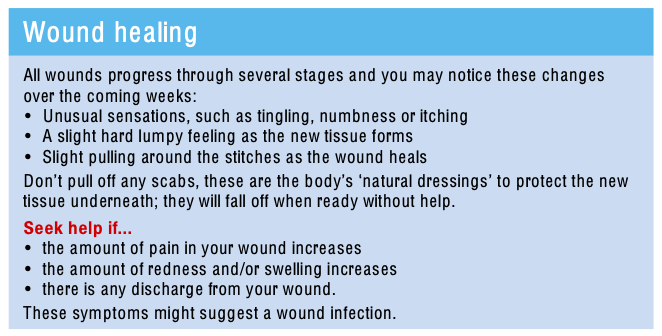
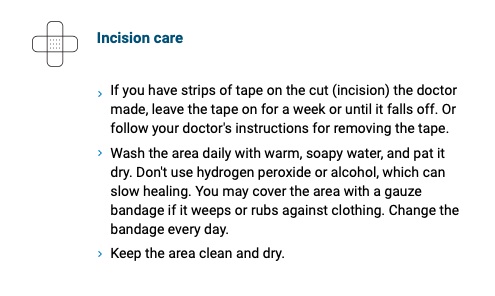
- Appreciate and be aware of the most common stoma issues and how to treat them: Leaks, pancaking and sore skin are common issues when faced with a new stoma. They are fixable with some extra care and attention in your change routine. All of these can be done at home alone – if you feel confident enough – but remember your stoma care nurse can always help.
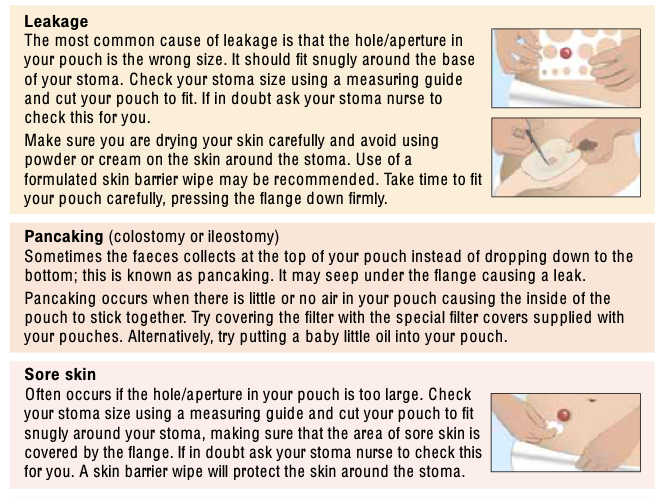

Until next time,

Do you have any questions or queries? Or just want to share your own experiences? You can leave me a reply here or leave comments via my social media accounts – on Twitter, find my blog page on Facebook and over on Instagram
If you enjoyed this post check out How to Prepare for Surgery and What’s in my Hospital Bag?
Resources:
Understanding your Feelings After Surgery – Me+ Program, ConvaTec
Colostomy: What to Expect at Home – My Alberta Care
Going Home After Stoma Surgery – SecuriCare

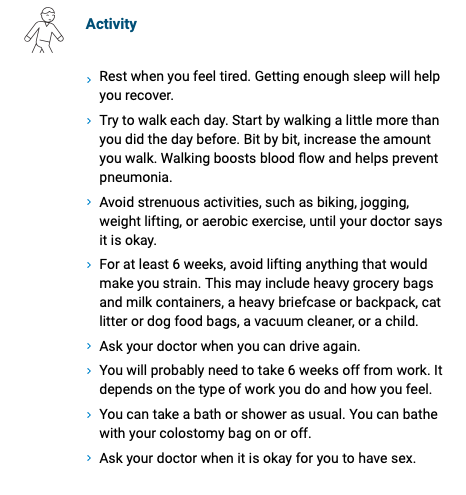
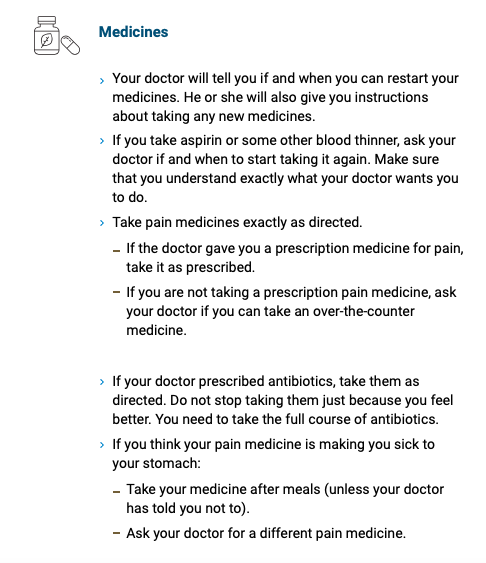
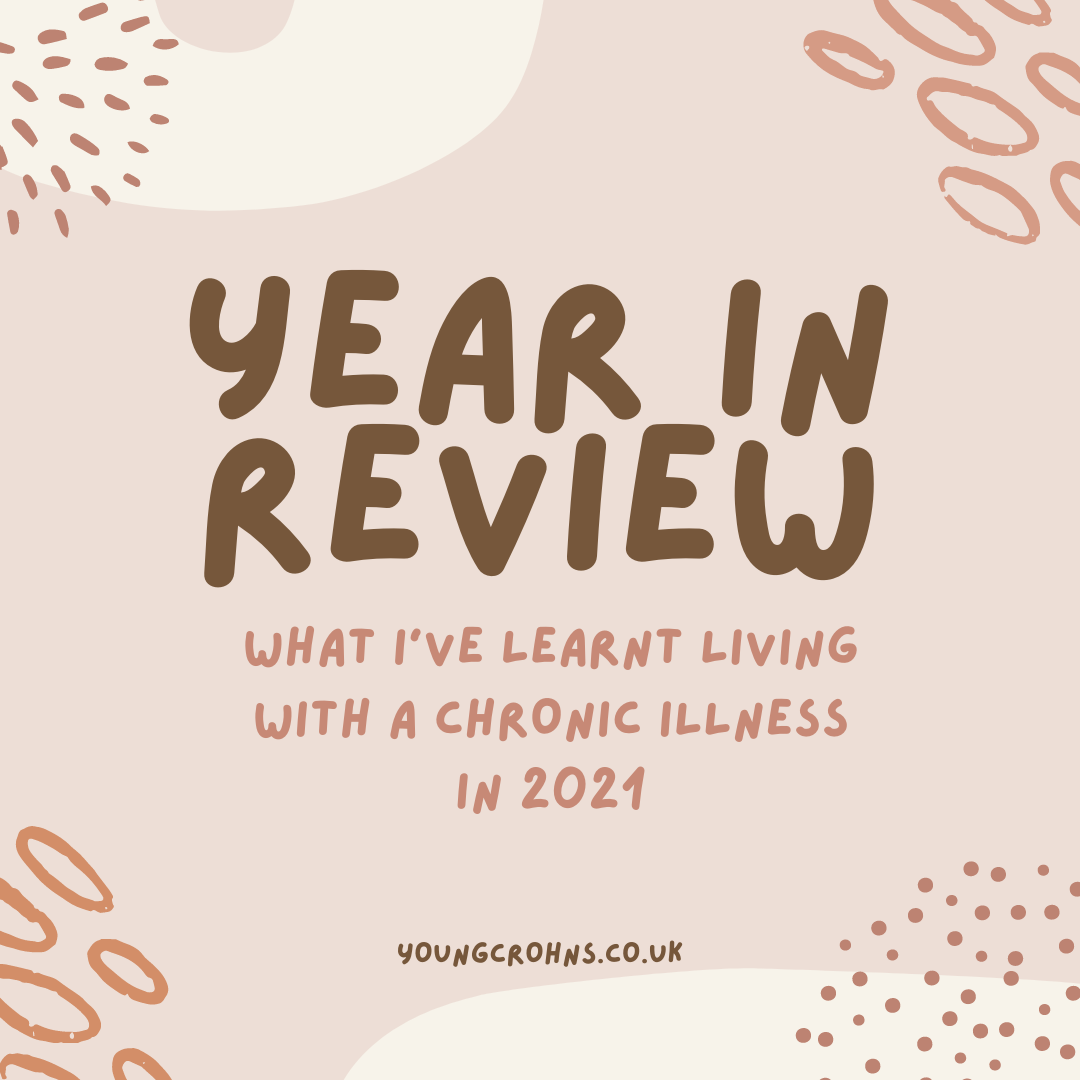


1 Comments
"Does your scar or stoma ever hurt?" •
09/10/2021 at 12:58
[…] If you enjoyed this post check out “What does a blockage feel like?” and “What is life like after stoma surgery?“ […]